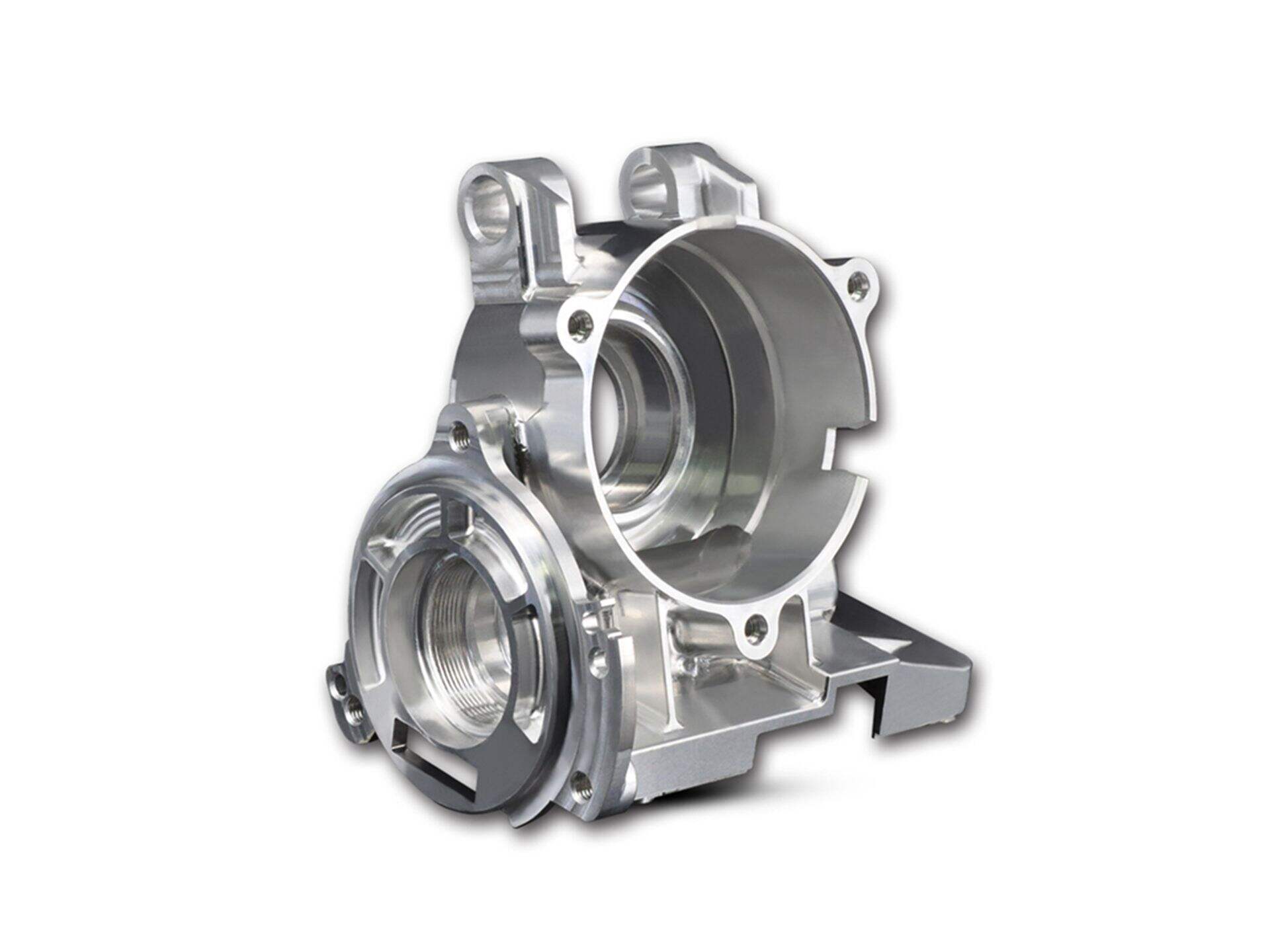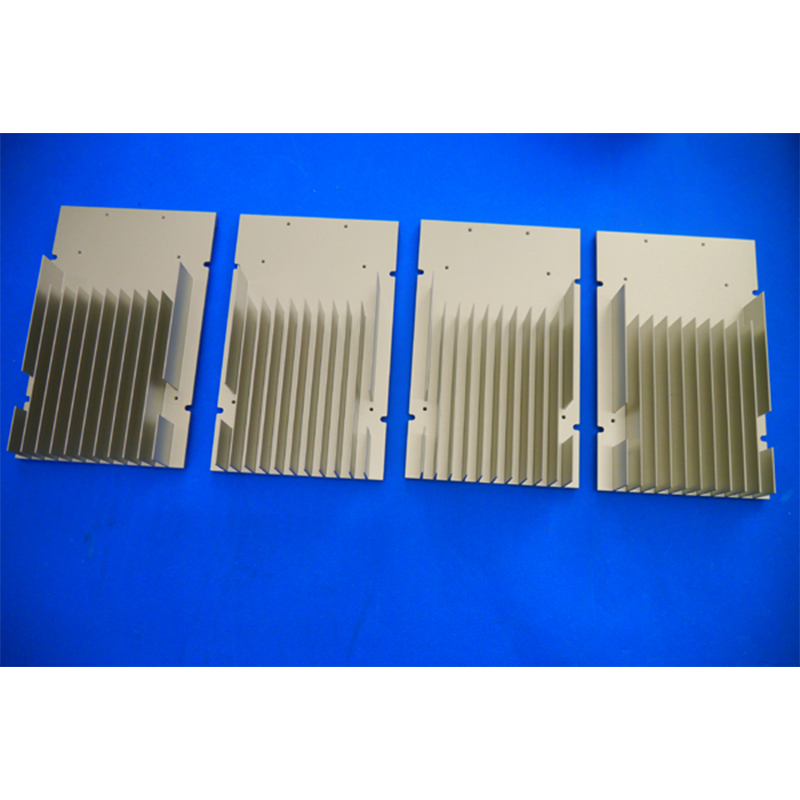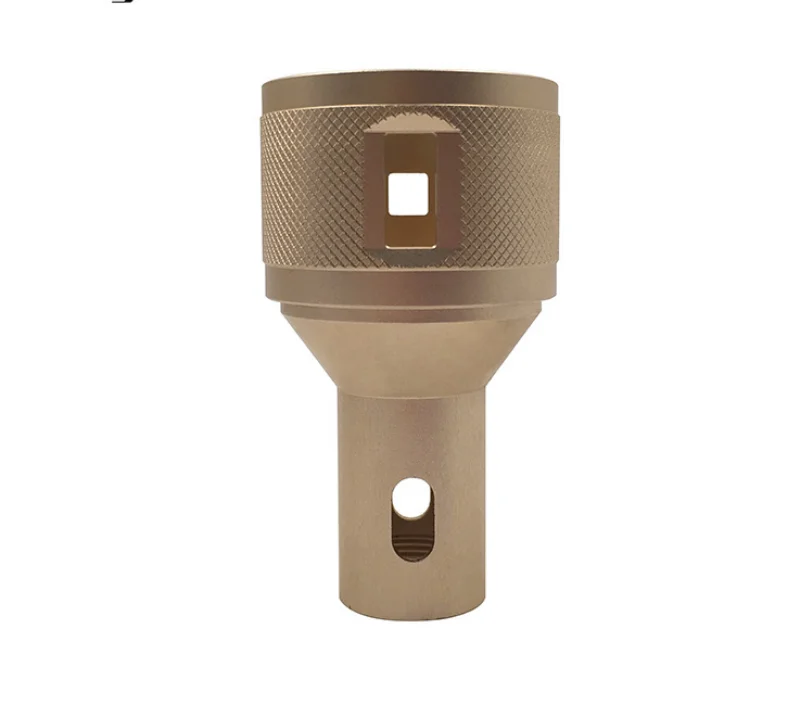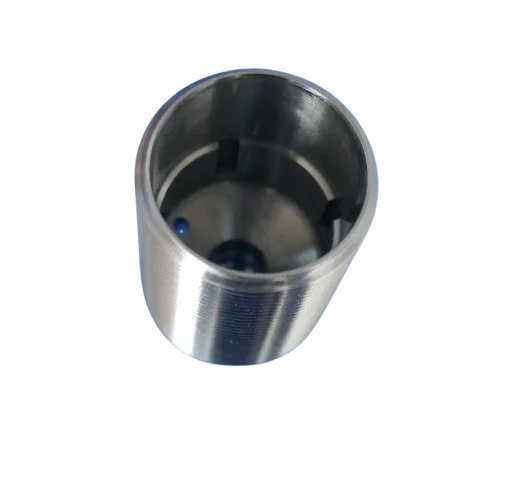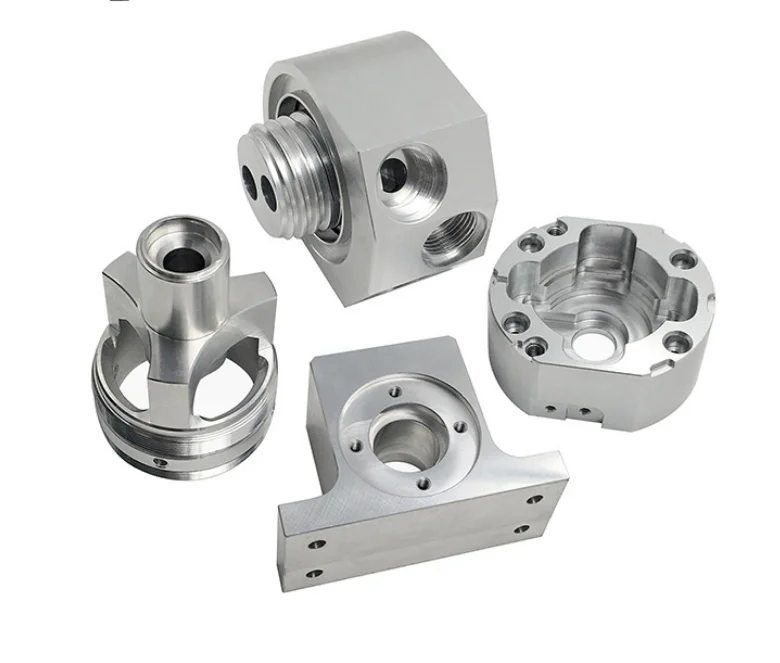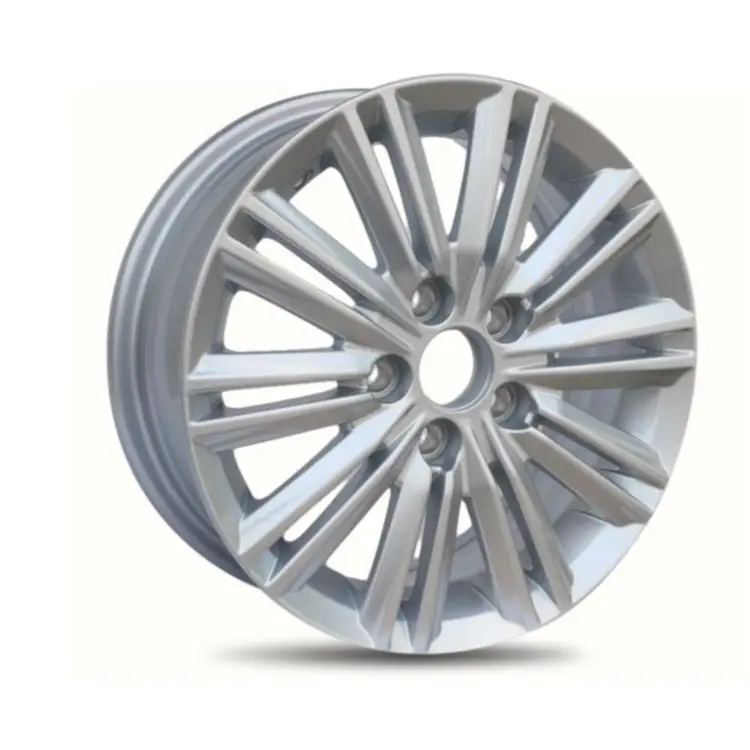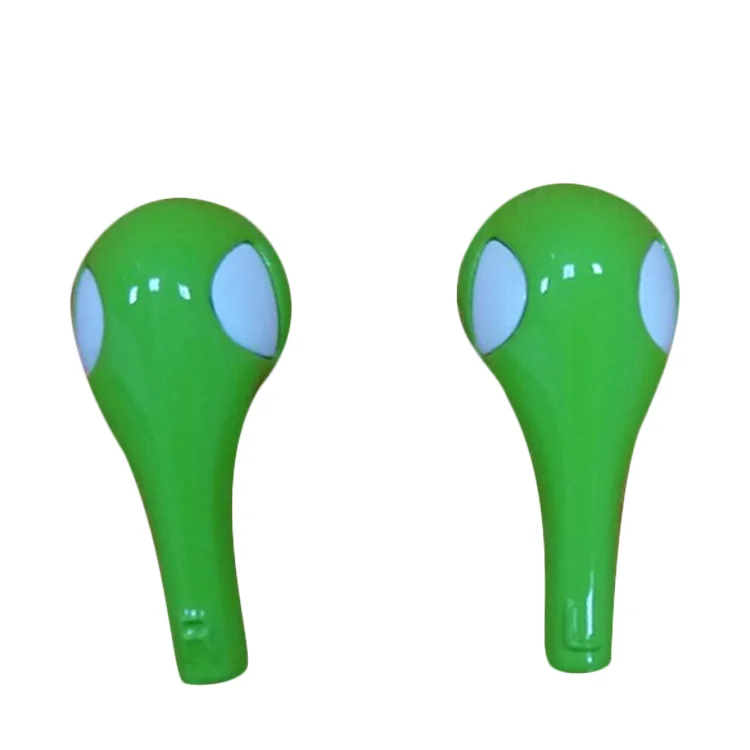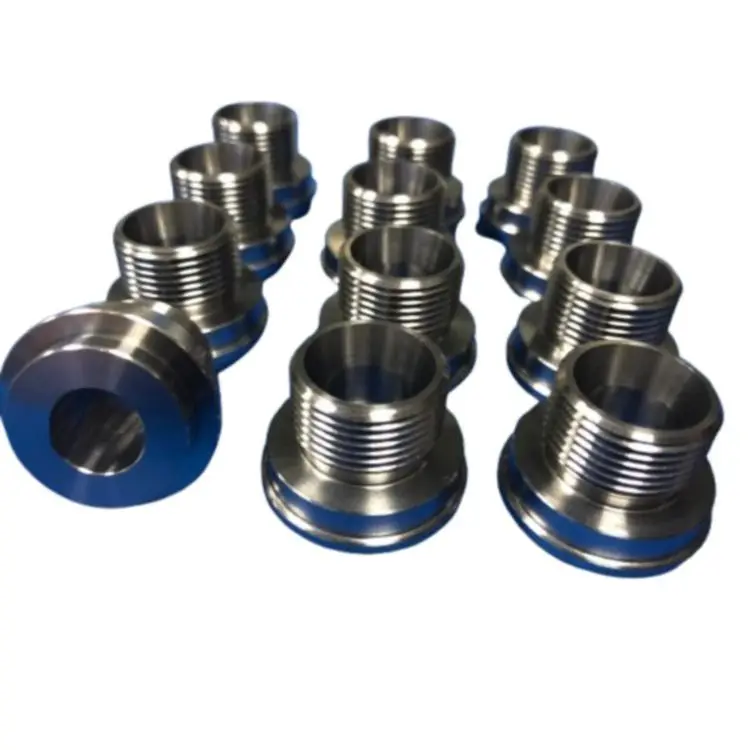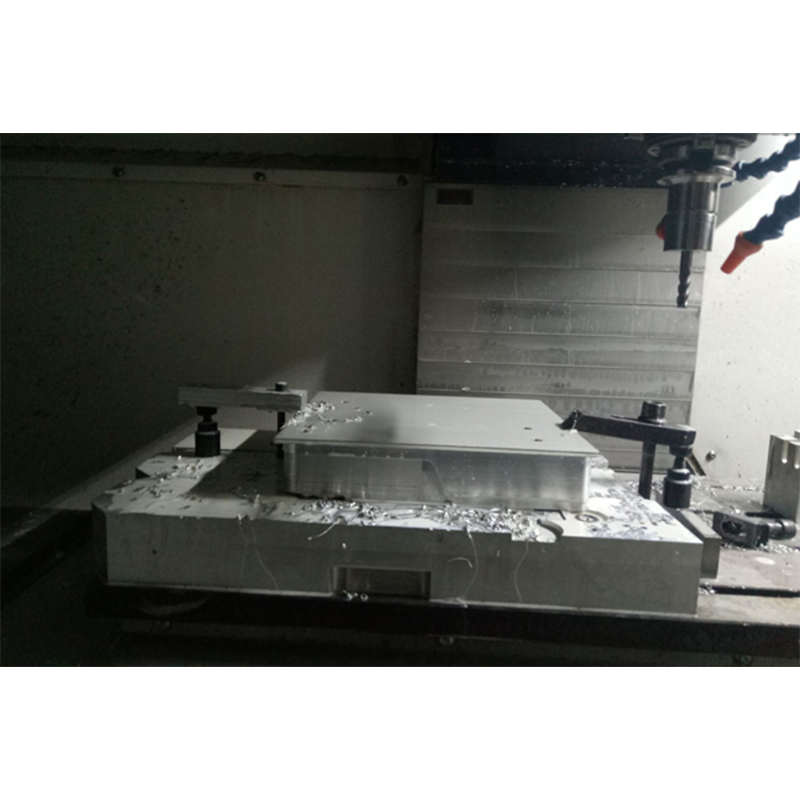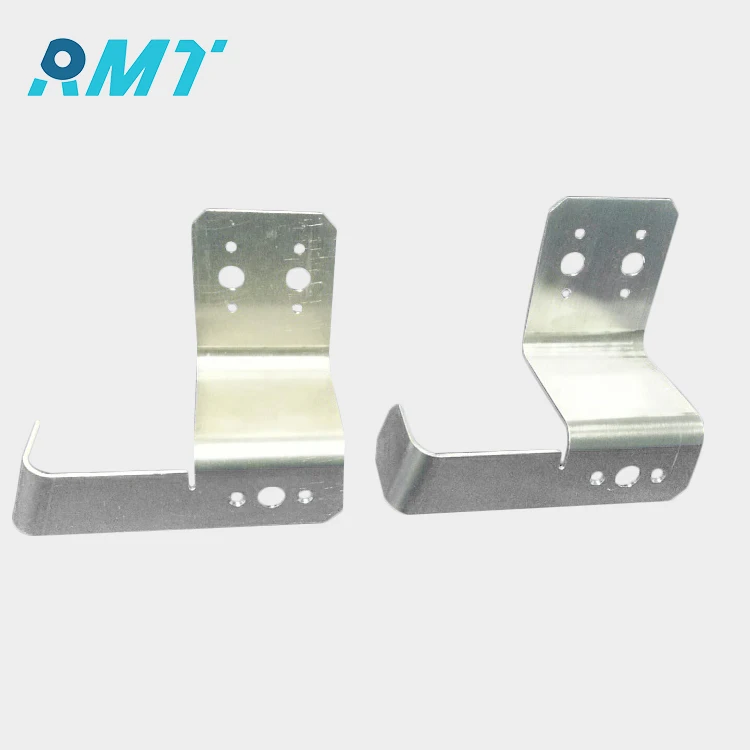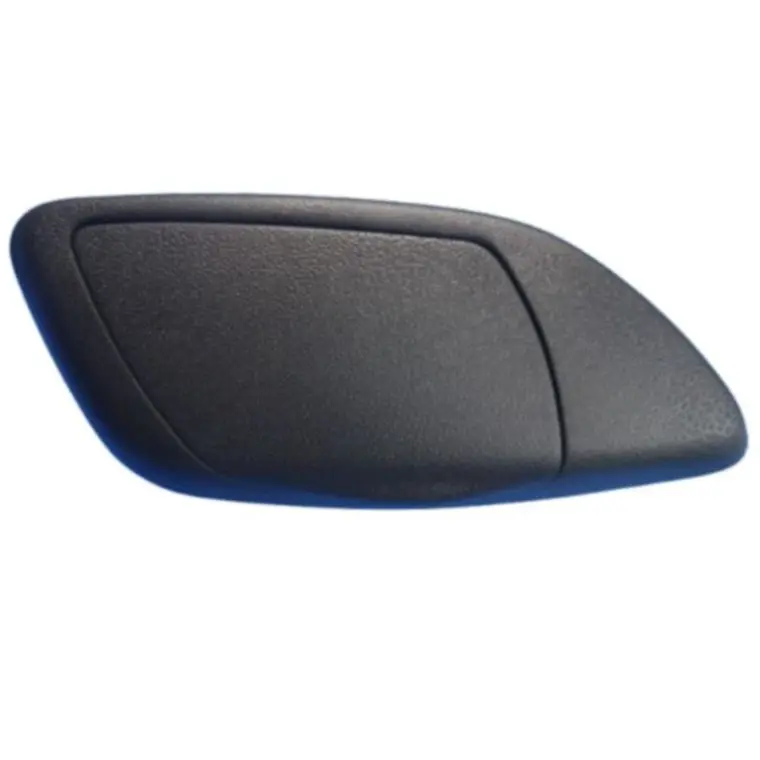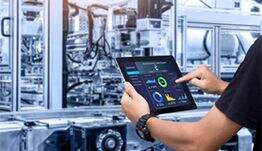সিএনসি মেশিনড পার্টসে উন্নতি: আধুনিক উৎপাদনে সঠিকতা এবং দক্ষতা
আধুনিক উৎপাদনের জন্য CNC মেশিন পার্টস এর উন্নয়ন বোঝা
CNC মেশিনিং, যা Computer Numerical Control মেশিনিং দ্বারা পরিচিত, আধুনিক উৎপাদনে এক গুরুত্বপূর্ণ পরিবর্তন ঘটায় কম্পিউটার প্রযুক্তি ব্যবহার করে যন্ত্রপাতিকে সঠিকভাবে এবং দক্ষতার সাথে নিয়ন্ত্রণ করে। হাতে-হাতে মেশিনিং প্রক্রিয়া থেকে CNC মেশিনিং এ পরিবর্তন উৎপাদন পরিবেশে অতুলনীয় সঙ্গতি অর্জন করতে সক্ষম করেছে এবং মানবিক ভুলকে বিশেষভাবে কমিয়েছে। এই উন্নয়ন এমন শিল্পের জন্য গুরুত্বপূর্ণ যেখানে সঠিক তৈরি প্রয়োজন, যেমন মোটর যানবাহন পার্টস উৎপাদন, যেখানে ছোট বিচ্যুতি বড় মানের সমস্যা তৈরি করতে পারে।
এই উন্নয়নকে চিত্রিত করতে যে কিছু প্রধান প্রযুক্তি রয়েছে, তার মধ্যে শ্রম-ভিত্তিক পাঞ্চ কার্ড সিস্টেম থেকে আজকের জটিল বহু-অক্ষ যন্ত্রপাতি পর্যন্ত যাত্রা অন্তর্ভুক্ত। এই যন্ত্রগুলি এখন CAD/CAM সফটওয়্যার ব্যবহার করে জটিল অংশ উৎপাদন করতে পারে যা খুব বেশি সटিকতার সাথে সম্পন্ন হয়। এই পরিবর্তন শুধুমাত্র যন্ত্রের ক্ষমতা বাড়িয়ে তোলে না, বরং CNC প্রযুক্তিকে আরও গভীরভাবে প্রসিশন শীট মেটাল ফ্যাব্রিকেশন প্রক্রিয়ার মধ্যে একত্রিত করে, যা উৎপাদনের গুণবत্তা এবং গতি আরও বাড়িয়ে তোলে। CNC মেশিনিংয়ের অবিরাম উন্নয়ন শিল্পের বড় ঝোঁকটি অটোমেশনের দিকে প্রতিফলিত করে।
ঐতিহাসিকভাবে, CNC প্রযুক্তির উন্নয়ন এয়ারোস্পেস, অটোমোবাইল এবং গ্রাহক ইলেকট্রনিক্স সহ বিভিন্ন খাতে উচ্চ মানের জন্য বढ়তি জনপ্রিয়তার সাথে সমান্তরাল রেখেছে। CNC মেশিনিং-এর একত্রিতকরণ উৎপাদন মানের সঙ্গে সংশ্লিষ্ট কঠোর মানদণ্ড অর্জনের জন্য উৎপাদনকারীদের উদ্যোগকে উজ্জ্বল করে তুলেছে। এই উদ্ভাবনটি উচ্চ দক্ষতা এবং নির্ভুল ফলাফল প্রয়োজন করা প্রতিযোগিতামূলক চাপের উত্তর হিসেবেও প্রতিফলিত হয়। শিল্পের উন্নয়ন চলমান থাকলেও, ব্যয়বাবধান কমানো, উচ্চ মান বজায় রাখা এবং আউটপুট বাড়ানোর জন্য CNC মেশিনিং-এর গুরুত্ব আরও বেড়ে যাচ্ছে, যা দ্রুত প্রোটোটাইপিং এবং অন্যান্য উন্নত উৎপাদন পদ্ধতির উদ্ভাবনের জন্য পথ প্রস্তুত করছে।
Automation in CNC Machining-এর ভূমিকা
সুপরিবর্তনশীল রোবোটিক্সের সংযোজন CNC মেশিনিং-এ প্রস্তুতকরণ জগতে এক নতুন পরিবর্তন আনছে, যা নির্দিষ্ট কাজের অটোমেশন সম্ভব করে এবং তাড়াতাড়ি উৎপাদন চক্র সম্ভব করে। এই অটোমেটেড সিস্টেম যখন আরও বেশি একত্রিত হয়, CNC মেশিনগুলি অনুপম সহায়তায় জটিল ডিজাইন পরিচালনা করতে সক্ষম হয়, যা ত্রুটি কমায় এবং উপাদানের অপচয় কমায়। রোবোটিক অটোমেশন দ্বারা প্রদত্ত সঠিকতা বিশেষভাবে সেই শিল্পের জন্য উপযোগী যেখানে উচ্চ সঠিকতা এবং পুনরাবৃত্তির প্রয়োজন হয়।
তৈরি করার ক্ষেত্র স্বয়ংক্রিয় CNC প্রক্রিয়া থেকে বিশেষভাবে উপকৃত হয়, যা শ্রম খরচ কমানো, উৎপাদন ক্ষমতা বাড়ানো, এবং কাজের স্থানটিকে নিরাপদ করার মাধ্যমে সুবিধা দেয় যা মানুষের অংশগ্রহণ কমিয়ে সম্ভাবনা প্রতিরোধক কাজগুলোতে নিরাপদ রাখে। স্বয়ংক্রিয়করণ শুধুমাত্র উৎপাদন দক্ষতা বাড়ায় না, বরং যন্ত্রপাতি মানুষের কর্মীদের জন্য ঝুঁকি বহনকারী কাজ করে একটি নিরাপদ কাজের পরিবেশ গ্রহণ করে। উদাহরণস্বরূপ, শিল্প ডেটা অনুযায়ী, স্বয়ংক্রিয় ফ্যাক্টরিগুলো ২০% বেশি উৎপাদনশীলতা প্রতিবেদন করেছে, যা স্বয়ংক্রিয়করণের মাধ্যমে ব্যবসায়ের প্রতিযোগিতামূলক সুবিধা প্রতিফলিত করে।
রোবোটিক্স এবং স্বয়ংক্রিয়করণ একত্রিত করে কোম্পানিগুলো আরও বেশি নির্ভুলতা এবং উৎপাদনশীলতা অর্জন করতে পারে, যা গাড়ি অংশ তৈরি এবং নির্ভুল শীট মেটাল ফ্যাব্রিকেশনের মতো খন্ডের স্থাপিত শক্ত মান পূরণ করে। সুতরাং, স্বয়ংক্রিয়করণ শুধুমাত্র একটি প্রযুক্তি প্রবণতা নয়, বরং এটি তৈরি করার একটি আবশ্যক বিকাশ যা অর্থনৈতিক এবং চালু উন্নয়ন দুই দিকেই নিশ্চিত করে।
কার্যপরিচালনা এবং মেশিন লर্নিং সহ সিএনসি মেশিনিং
সিএনসি মেশিনিং-এ AI এবং মেশিন লর্নিং-এর একত্রিত করা উচ্চতর উৎপাদনশীলতা এবং দক্ষতা নিয়ে নতুন এক যুগের শুভারম্ভ ঘটায়। AI-এর শক্তি দ্বারা পরিচালিত প্রেডিক্টিভ মেইনটেন্যান্স এক গুরুত্বপূর্ণ অগ্রগতি হিসাবে পরিচিত, যা যন্ত্রপাতি বিফলতা আগেই পূর্বাভাস করে এবং ডাউনটাইম এবং সংশ্লিষ্ট প্যার খরচ কমিয়ে আনে। এই পূর্বাভাস কোম্পানিদের অপারেশনাল সাথে সাথে চালিত রাখার অনুমতি দেয়, যা সম্পদ সংরক্ষণ এবং বিশ্বস্ততা বাড়ায়।
অপারেশনাল দক্ষতা মেশিন লর্নিং অ্যালগরিদম দ্বারা অপারেশনাল ডেটা বিশ্লেষণ করে বিশেষভাবে উন্নতি পায়। এই অ্যালগরিদম কাজের ফ্লো সরলীকরণের সুযোগ চিহ্নিত করে, যা উৎপাদন বৃদ্ধি করে এবং সমগ্র উৎপাদন প্রক্রিয়া অপটিমাইজ করে। প্যাটার্ন এবং বিচ্যুতি পর্যবেক্ষণ করে এই সিস্টেম কার্যকর বোধবুদ্ধি প্রদান করে যা অপারেশন সুন্দরভাবে সুসজ্জিত করতে এবং উৎপাদনশীলতা বাড়াতে সাহায্য করে।
এছাড়াও, AI রিয়েল-টাইমে CNC মেশিনে তৈরি অংশগুলি পরিদর্শন করতে সহায়তা করে, যা উৎপাদনের ফলাফলে ব্যাপক গুণবত্তা নিয়ন্ত্রণ এবং সঙ্গতি নিশ্চিত করে। এই ক্ষমতা সমস্যাগুলি দ্রুত সমাধান করে এবং গুণবত্তা মানদণ্ড বজায় রাখে, যা প্রসিজন মেশিনিং প্রয়োজন করা শিল্পের মধ্যে অটোমোবাইল অংশ এবং আয়ারোস্পেস খন্ডে গুরুত্বপূর্ণ।
অধ্যয়নের মাধ্যমে দেখানো হয়েছে যে উৎপাদন পরিবেশে AI-অভিভাবিত প্রক্রিয়াগুলি 15% বেশি উন্নতি আনতে সাহায্য করে। এই গুরুত্বপূর্ণ উন্নতি নির্দেশ করে যে কিভাবে AI এবং মেশিন লার্নিং CNC মেশিনিং জগতে প্রতিযোগিতামূলক থাকার জন্য গুরুত্বপূর্ণ ভূমিকা পালন করে। যেহেতু শিল্পের উপর ফোকাস হচ্ছে দক্ষতা সর্বোচ্চ করা এবং প্রতিযোগিতামূলক সুবিধা বজায় রাখা, এই প্রযুক্তি গ্রহণ করা শুধু উপকারী নয়, বরং অপরিহার্য।
CNC মেশিনিং-এর জন্য ম্যাটেরিয়াল এবং টুলিং-এ প্রভাবশালী উদ্ভাবন
উন্নত মালামাল যেমন যৌগিক এবং উচ্চ-শক্তির জ্যোটিমান ধাতু সমূহের আগমন সিএনসি মেশিনিং-এ গভীর প্রভাব ফেলেছে, এটি আলোড়ানো কিন্তু বেশি টিকে থাকা উপাদান উৎপাদন করতে সহায়তা করেছে। এই মালামালগুলো উৎপাদকদের অধিক শক্তি-ওজন অনুপাত সম্পন্ন অংশ তৈরি করতে দেয়, যা উচ্চ পারফরম্যান্স এবং টিকে থাকার দরকারী অ্যাপ্লিকেশনের জন্য প্রয়োজন। এছাড়াও, এই উদ্ভাবনগুলো গাড়ি উপাদান উৎপাদন এবং নির্ভুল শীট মেটাল ফ্যাব্রিকেশনের খন্ডে উন্নয়ন চালিয়ে যায়।
নতুন কাটিং টুল, বিশেষ করে যেগুলোকে ডায়ামন্ড বা কারবাইড দিয়ে কোট করা হয়, সিএনসি মেশিনিং প্রক্রিয়াগুলোকে বিপ্লবী করে তুলেছে টুল পারফরম্যান্স বাড়িয়ে এবং টুলের জীবন বাড়িয়ে। এই কোটিংগুলো টুল পরিবর্তনের পরিমাণ কমিয়ে দেয়, যা রক্ষণাবেক্ষণের সময় এবং খরচ কমিয়ে দেয়। এই উন্নতিগুলো ঐ শিল্পের জন্য প্রাণপণ যেখানে অবিচ্ছিন্ন উৎপাদন গুরুত্বপূর্ণ, যা অনবচ্ছিন্ন অপারেশন এবং বৃদ্ধি প্রাপ্ত মেশিনিং দক্ষতা অনুমতি দেয়।
এই উপকরণ এবং টুলিং উন্নয়ন হতে ভালো তাপমাত্রার স্থিতিশীলতা এবং মàiর প্রতিরোধ বৃদ্ধি পায়, যা উচ্চতর পrecisoin এবং আরও দীর্ঘ জীবন ধারণকারী যন্ত্রপাতি অংশ নির্মাণ করতে সহায়তা করে। ডেটা নির্দেশ করে যে অপটিমাইজড উপাদান এবং টুলিং সমন্বয় ব্যবহার করে CNC মেশিনিং প্রক্রিয়া 30% পর্যন্ত কার্যকারিতা বৃদ্ধি পাওয়া যেতে পারে। এই উন্নয়নগুলি আধুনিক CNC অ্যাপ্লিকেশনে উপকরণ বিজ্ঞানের উন্নয়নের গুরুত্বপূর্ণ ভূমিকা চিহ্নিত করে, যা দ্রুত প্রোটোটাইপিং এবং উৎপাদনে কী সম্ভব তার সীমা ছাড়িয়ে যাওয়ার কারণ হয়।
পণ্য বিভাগ: প্রসিশন CNC মেশিনিড হার্ডওয়্যার পার্টস
CNC মেশিনিং প্রক্রিয়ায় তৈরি কাস্টমাইজযোগ্য উপাদানগুলি বিভিন্ন শিল্প অ্যাপ্লিকেশনে আরও গুরুত্বপূর্ণ হচ্ছে, কারণ এগুলি ফিট ও ফাংশনালিটির বিশেষ ক্লায়েন্ট প্রয়োজনের মেট করতে সক্ষম। CNC মেশিনিং-এর পরিবর্তনশীলতা অটোমোবাইল, এয়ারস্পেস এবং ইলেকট্রনিক্স সহ বিভিন্ন শিল্পের জন্য নির্দিষ্ট অংশ তৈরি করার অনুমতি দেয়। এই বহুমুখী ধারণা দিয়ে প্রতিটি উপাদানকে ঠিক নির্দিষ্ট বিন্যাসে তৈরি করা যায়, যা বেস্টোম সমাধান প্রয়োজন করা ব্যবসার জন্য একটি গুরুত্বপূর্ণ সুবিধা প্রদান করে।
উচ্চমানের নির্মাণ মান বজায় রাখা সমস্ত CNC মেশিনিং অংশ সख্ত নিয়মাবলী এবং ক্লায়েন্ট নির্দিষ্টিকরণের সাথে মেলে যায় এমনভাবে নিশ্চিত করতে প্রধান। এই মানের প্রতি বাধ্যতাবোধ ব্যবহারের মধ্যে ভরসা বাড়ায় এবং ক্লায়েন্টদের কঠিন পরিবেশে অংশগুলির দৈর্ঘ্য এবং পারফরম্যান্সের গ্যারান্টি দেয়। সর্বশেষ CNC প্রযুক্তি ব্যবহার করে নির্মাতারা সম্পূর্ণভাবে শিল্প মান অতিক্রম করে অংশ উৎপাদন করতে পারেন।
আধুনিক CNC মেশিনের ক্ষমতা জটিল ডিজাইন এবং জটিল জ্যামিতি তৈরি করতে সহায়তা করে, যা দ্রুত প্রোটোটাইপিং এবং চঞ্চল উৎপাদন প্রতিক্রিয়াকে সমর্থন করে। এই ডিজাইনের পরিবর্তনশীলতা এবং ব্যবহারের দক্ষতা কারণে CNC মেশিন দ্বারা তৈরি অংশগুলি গতিশীল খন্ড যেমন মোটর যানবাহন উৎপাদন এবং নির্ভুল শीট মেটাল ফ্যাব্রিকেশনে গুরুত্বপূর্ণ ভূমিকা পালন করে। CNC প্রযুক্তির সাথে, ব্যবসায়িক প্রতিষ্ঠানগুলি বাজারের প্রয়োজন মেটাতে দ্রুত পরিবর্তন করতে পারে এবং উচ্চ নির্ভুলতা এবং গুণমানের মানদণ্ড বজায় রাখতে পারে।
CNC মেশিন দ্বারা তৈরি অংশগুলি, যেমন নির্ভুল CNC মেশিন দ্বারা তৈরি হার্ডওয়্যার অংশ , শিল্পি এবং বাণিজ্যিক ব্যবহারের জন্য ব্যবস্থাপনা করা যায়। এই ব্যবহারভিত্তিক অংশগুলি নির্ভুলতা এবং দীর্ঘস্থায়ীতায় পারদর্শী, যা তাদের জটিল উৎপাদন প্রয়োজনের জন্য আদর্শ বাছাই করে।
পণ্য বিভাগ: 100 সেট এলুমিনিয়াম 6061 প্রসিশন সিএনসি মেশিনড হিট সিঙ্ক
এলুমিনিয়াম 6061, এর উত্তম যান্ত্রিক বৈশিষ্ট্যের জন্য বিখ্যাত, প্রসিশন সিএনসি মেশিনড হিট সিঙ্কের জন্য আদর্শ বাছাই। এই উচ্চ-গ্রেডের উপাদান অত্যাধুনিক শক্তি এবং দৃঢ়তা প্রদান করে, যা ইলেকট্রনিক্স শীতলকরণ অ্যাপ্লিকেশনে কার্যকর তাপ বিতরণের জন্য অপরিহার্য। অপটিমাল চালু তাপমাত্রা বজায় রাখার মাধ্যমে, এই হিট সিঙ্কগুলি ইলেকট্রনিক্স উপাদানের পারফরম্যান্স এবং জীবন কাল বাড়ানোতে গুরুত্বপূর্ণ ভূমিকা পালন করে।
এই হিট সিঙ্কগুলির দৈর্ঘ্যস্থায়িত্ব এবং পারফরমেন্স অত্যন্ত গুরুত্বপূর্ণ, কারণ তাদের ডিজাইন কার্যকরভাবে তাপ চালকতা নিশ্চিত করে। এই নির্মাণের দক্ষতা আদর্শ তাপমাত্রা বজায় রাখতে এবং অত্যধিক গরম হওয়া এড়াতে এবং ইলেকট্রনিক ডিভাইসের জীবনকাল বাড়াতে গুরুত্বপূর্ণ। প্রসিশন CNC মেশিনিংয়ের মাধ্যমে, এই হিট সিঙ্কগুলি সঠিক মাত্রা এবং মসৃণ ফিনিশ অর্জন করে, যা বিভিন্ন সিস্টেমে অমায়িকভাবে যোগাযোগ করতে সক্ষম করে।
এক ব্যাচে 100 সেট উৎপাদন করা CNC মেশিনিং প্রক্রিয়ার স্কেলেবল প্রতিভা প্রদর্শন করে। এই ক্ষমতা ছোট এবং বড় মাত্রার উৎপাদনের জন্য মূল্যবান, যা উৎপাদকদের বিভিন্ন প্রকল্পের দাবি পূরণ করার জন্য প্রসারিত প্রতিবেদন দেয়। এছাড়াও, ব্যাচ ক্রয় অনেক সময় খরচ কার্যকারিতা আনে, সাপ্লাইয়াররা যে ছাড় প্রদান করে তা উৎপাদন খরচ কমিয়ে দিতে পারে। এই অর্থনৈতিক উপকারিতা উৎপাদকদের উচ্চ গুণবत্তার আউটপুট নিশ্চিত রাখতে এবং প্রতিযোগিতামূলক মূল্য বজায় রাখতে সক্ষম করে।
সিএনসি মেশিনিং-এর ভবিষ্যত পৃথিবী: ট্রেন্ড এবং প্রত্যাশা
ঐতিহ্যবাহী সিএনসি মেশিনিং সঙ্গে যোগ করে যৌথ উৎপাদনের এই বিপ্লবী ট্রেন্ড উৎপাদনের ভবিষ্যতকে আকার দিচ্ছে। এই মিশ্র পদ্ধতি সিএনসি মেশিনিং-এর নির্ভুলতা এবং ৩ডি প্রিন্টিং-এর দক্ষতাকে মিলিয়ে গ্রাহকের বিশেষ প্রয়োজনের জন্য ব্যক্তিগত সামগ্রী তৈরি করার অনুমতি দেয়। এই পরিবর্তন শুধুমাত্র প্রাঙ্গনের প্রসারিত প্রসারিত করে বৃদ্ধি করে, কিন্তু উৎপাদন প্রক্রিয়ার ক্ষমতা বাড়িয়ে তোলে, যা একসময় উৎপাদন করা কঠিন জটিল অংশ তৈরি করার অনুমতি দেয়।
একই সময়ে, CNC এবং IoT প্রযুক্তির মধ্যে সিনার্জি স্মার্ট ফ্যাক্টরির উদayের পথ প্রশস্ত করছে। এরকম পরিবেশে, যন্ত্রপাতি পরস্পরের সাথে যোগাযোগ করতে পারে এবং উৎপাদন ফ্লো অত্যন্ত সহজে অপটিমাইজ করতে পারে, যা উৎপাদনশীলতা বৃদ্ধির জন্য গুরুত্বপূর্ণ ভূমিকা রাখে। বাস্তব-সময়ের ডেটা ব্যবহার করে, উৎপাদকরা বুদ্ধিমান অপারেশনাল দক্ষতা অর্জন করতে পারেন এবং ব্যবধান কমাতে পারেন। IoT এবং CNC মেশিনিং এর এই একত্রীকরণ শিল্পের আরও বুদ্ধিমান এবং আত্মনির্ভরশীল উৎপাদন পরিবেশ উন্নয়নের প্রতি আঙ্গিকার তুলে ধরে।
ভবিষ্যতের প্রত্যাশিত ধারা সমূহের মধ্যে ডেটা-ভিত্তিক নির্ণয় গ্রহণ এবং বাস্তব-সময়ের বিশ্লেষণের উপর আরও বেশি নির্ভরশীলতা রয়েছে যা প্রস্তুতকরণ প্রক্রিয়াগুলি অপটিমাইজ করতে সাহায্য করবে। ২০২৫ সাল পর্যন্ত, রিপোর্ট বলে যে এগ্রহণ প্রযুক্তিগুলি গ্রহণকারী শিল্পের জন্য উৎপাদনশীলতা বৃদ্ধির পরিমাণ সর্বোচ্চ ৩০% হতে পারে। এটি নির্দেশ করে যে সর্বশেষ প্রযুক্তিগুলি যুক্ত করার মাধ্যমে যে রূপান্তর সম্ভব, তা কিভাবে CNC মেশিনিং এবং বড় পরিমাণে প্রস্তুতকরণের জগতে নতুন মানদণ্ড স্থাপন করতে সক্ষম। এই ধারাগুলি যোগাযোগ করা এই খন্ডের জন্য একটি গুরুত্বপূর্ণ বিকাশ নির্দেশ করে, যা কার্যকারিতা এবং উদ্ভাবনের জন্য নতুন মানদণ্ড স্থাপন করে।

 EN
EN
 AR
AR
 BG
BG
 HR
HR
 CS
CS
 DA
DA
 NL
NL
 FI
FI
 FR
FR
 DE
DE
 EL
EL
 IT
IT
 JA
JA
 KO
KO
 NO
NO
 PL
PL
 PT
PT
 RO
RO
 RU
RU
 ES
ES
 SV
SV
 IW
IW
 LV
LV
 SR
SR
 SK
SK
 UK
UK
 GL
GL
 HU
HU
 TH
TH
 TR
TR
 FA
FA
 GA
GA
 CY
CY
 EU
EU
 BN
BN
 BS
BS
 LA
LA
 NE
NE
 SO
SO
 KK
KK
